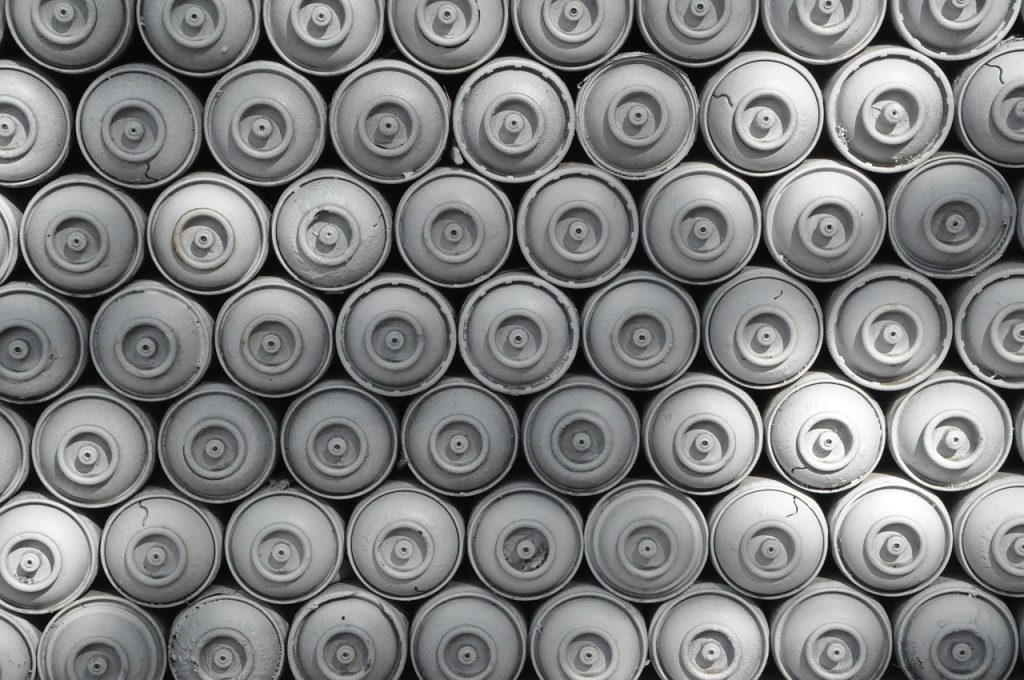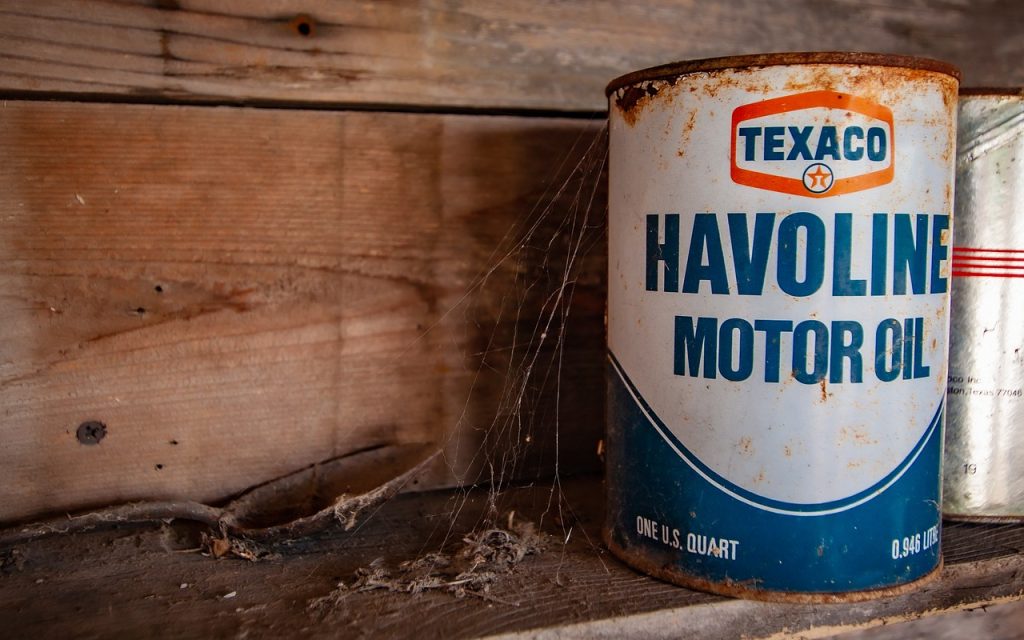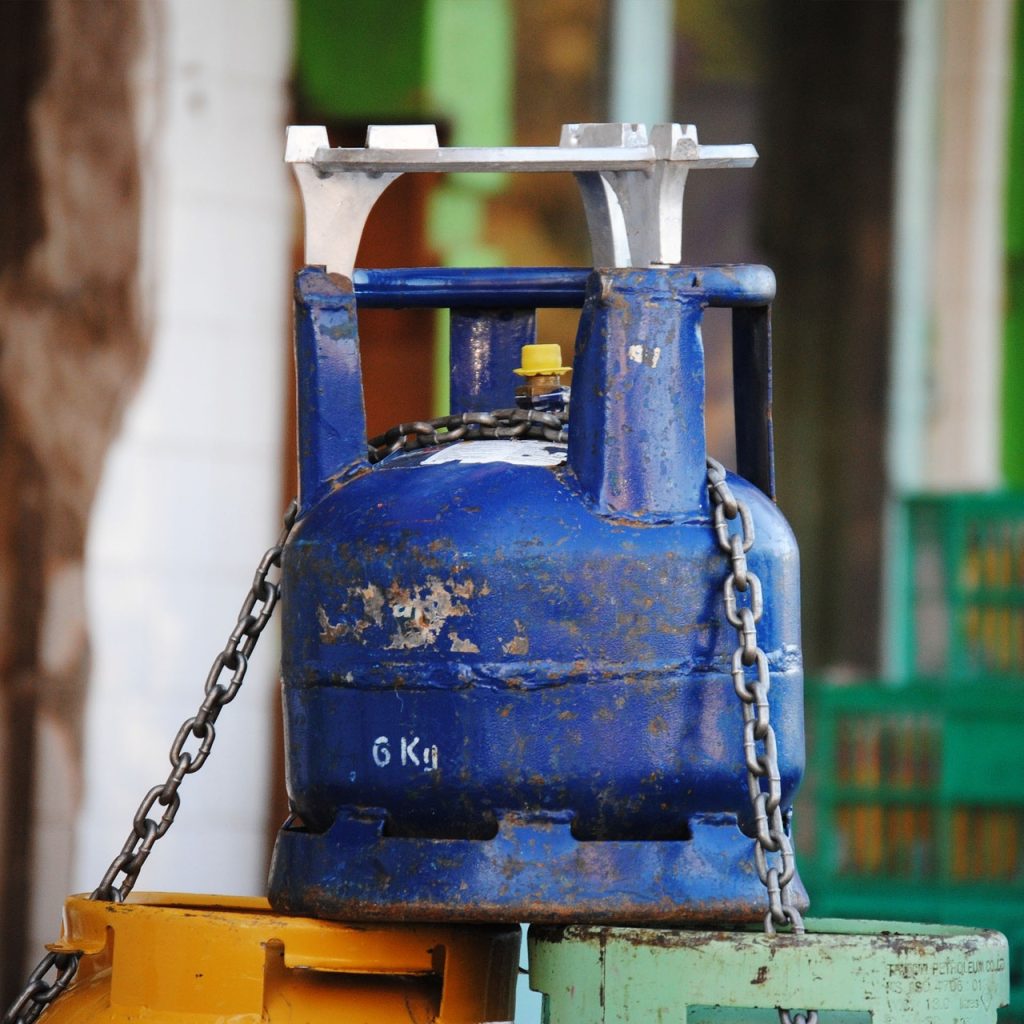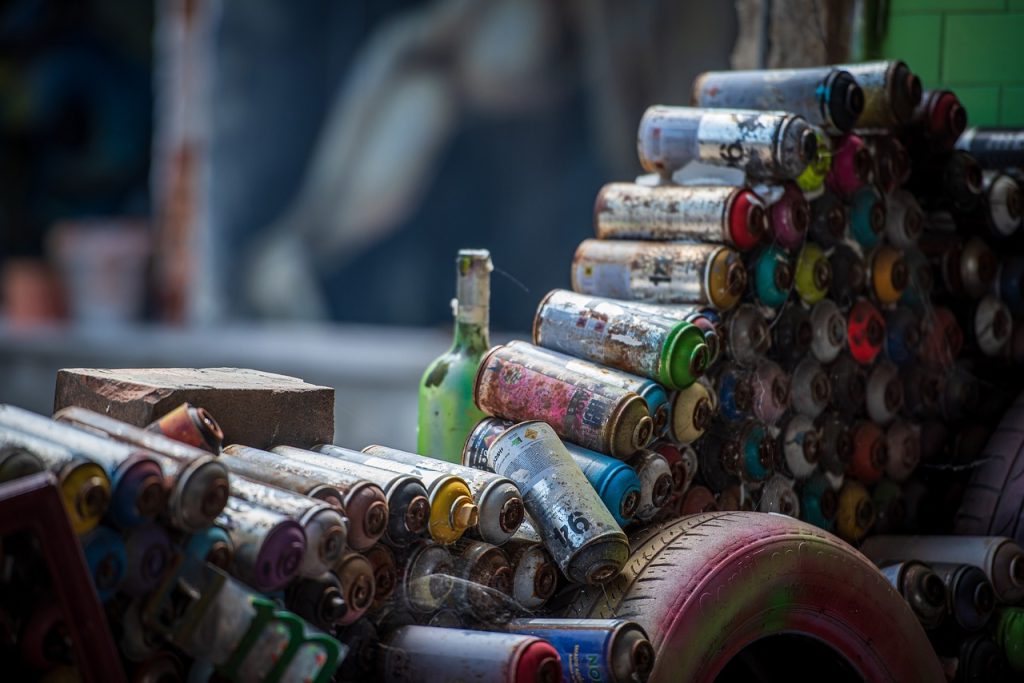- Ensure the aerosol cans are completely empty.
- Do not puncture, remove the nozzle, or squash the cans.
- Use an Aerosolv system to safely empty aerosols if needed.
- Once completely empty, treat aerosol cans as regular waste.
- For partially full cans, dispose of them as universal waste.
- Adhere to federal universal waste regulations during disposal.
- Utilize local recycling systems.
- Transport the cans to the appropriate recycling facilities.
The Importance of Recycling Aerosol Cans
Recycling aerosol cans is crucial, it’s a process we should all be familiar with. Whether they’re empty aerosol cans or non-empty aerosol, it doesn’t matter. All types of aerosol cans should be recycled. These cans are often considered hazardous waste. Why? Because aerosol cans store products under pressure, which may be hazardous when not handled correctly. Therefore, waste management should be taken seriously. Moreover, when we recycle, we’re doing our part to reduce waste. What’s more, the metal in the cans can be recycled and reused multiple times. So, don’t discard them. The importance of recycling shouldn’t be underestimated. The role we all play in recycling aerosol cans or any other cans is essential. It’s a simple act that has a massive impact on our environment. So, let’s recycle!
Environmental Impact: Why Aerosol Can Recycling Matters
The environmental impact of aerosol cans is substantial, making their recycling critical. Aerosol cans contain various materials that, if not properly managed, can be hazardous. Due to their potential risk, they’re classified as ‘universal waste’ by federal regulations. Improper disposal of these aerosol containers can contaminate our environment, tainting water and soil with hazardous substances. Therefore, it’s essential to recycle cans meeting waste regulations rather than tossing them in general waste. However, the process of recycling aerosol isn’t as simple as recycling other items. These spray cans require special handling due to their high-pressure design and often hazardous contents. When recycled correctly, the components of the aerosol can be repurposed, ultimately reducing our reliance on raw materials. So, let’s all follow federal universal waste regulations and commit to recycling our aerosol cans.
Steps to Safely Recycle Aerosol Cans
One way to dispose of empty aerosol cans safely is using an aerosolv system. This recycling system punctures the cans to extract aerosol contents, which is often considered hazardous waste. It uses safety showers during the process, ensuring a safe, efficient aerosol recycling method. The waste aerosol produced can be removed by a service that specialises in hazardous waste disposal. However, it’s crucial to ensure the aerosol cans are completely empty before recycling, minimising risk. Recycling is one effective way to dispose of hazardous waste, and products like the aerosolv system make it safer and possible. More information on the disposal and recycling of these products, such as aerosol cans, can be found on websites dedicated to waste management and recycling. Remember, every can recycled makes a significant difference.
Preparation: Ensuring Aerosol Cans are Ready for Recycling
Before disposal or recycling, prepping aerosol cans is crucial. Both empty aerosol cans and non-empty aerosol cans require great care as they’re considered hazardous waste under certain regulations. Handle them cautiously to ensure they’re ready for aerosol recycling, preventing potential environmental harm. It’s crucial to know that you shouldn’t try to puncture, remove the nozzle, or squash cans as they may still contain hazardous products. Utilize an Aerosolv system, a specialized tool, to empty aerosols safely. When completely empty, aerosol cans can be treated as regular waste, while those partially full should be disposed of as universal waste. Confirm the cans are empty before disposal. Recalling these precautions and regulations helps to create a waste-free environment by recycling these products appropriately.
Collection and Transportation: Getting Cans to the Right Facilities
Once your aerosol cans are prepped for recycling, the next step is collection and transport to the right facilities. Adherence to waste regulations is key, particularly as aerosol cans fall under the federal universal waste category. This implies that these cans post potential hazardous risks if not correctly handled. Many local recycling systems now offer waste aerosol collection services. Alternatively, you can make use of a service, which is a guide provided by various organisations, that assists residents in responsibly discarding waste products. Such services ease the disposal process, enforce regulations, and ensure waste aerosols are transferred safely avoiding hazardous mishaps. Remember, every correctly recycled aerosol can makes a significant contribution to a healthier environment making it imperative to place your cans in the right hands.
Common Misconceptions About Aerosol Can Recycling
One common misconception about recycling aerosol cans is that they’re hazardous waste – not suitable for regular recycling. In reality, if handled correctly, aerosol cans aren’t more hazardous than other recyclable goods. Another misconception is that all aerosol cans are the same, but they vary in components and materials, affecting their recycling process. Some people also mistakenly believe that recycling aerosol cans isn’t as impactful as recycling other items. However, consider the hazardous materials aerosol cans contain – recycling them is critical for environmental health. Misinformation can pose obstacles to efficient recycling. Using a trusted source can guide you through proper aerosol can recycling, helping debunk these misconceptions and promote responsible recycling practices.
Debunking Myths: What You Might Not Know About Aerosol Recycling
Contrary to popular misconceptions, recycling aerosol cans isn’t as hazardous as you might think. In fact, even a non-empty aerosol can undergo recycling safely. The aerosol cans don’t suddenly become an implosion risk, contrary to what some might fear. Preparing the aerosol cans for recycling involves ensuring they’re completely empty. But, what if you mistakenly have a spray can that’s not? Don’t worry. Your local hazardous waste facility can safely discharge it. You see, these aerosol cans aren’t a ticking time bomb. They’re more like a soda can, another commonly recycled item. They have all the necessary information to safely process your aerosol container, debunking the myths about aerosol can recycling.




